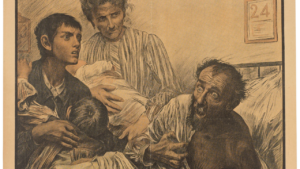Alcoholism is a term for what is now more widely referred to as alcohol use disorder (AUD), a disease that has both physical and mental health components. That is, alcoholism not only affects systems in the body but can have effects on mental and emotional health as well. Within a culture that largely celebrates drinking, it can be difficult to broach the subject of alcoholism or to bring up concerns about you or someone you know has a drinking problem.
Do you need alcohol addiction treatment? Call us today at 850.374.5331.
Learning About Alcoholism Causes And Risk Factors
What causes alcoholism in a person can be different for each person based on their personality, genetics, history of drinking, and other factors. These factors that can increase a person’s risk for alcoholism are known as risk factors. While having one or more risk factors for alcoholism does not guarantee you will develop a drinking problem, it can make you more susceptible.
One common barrier that keeps people who have a drinking problem from seeking treatment is a lack of knowledge about what alcoholism is and what can cause it. Learning some of the most common causes and risk factors may offer some guidance on how to determine whether or not you or a loved one may have a drinking problem and require treatment. The following are some of the most well-known causes and risk factors for alcoholism:
1. Family History Of Alcoholism
Having a close family member, such as a parent, sibling, or other close relatives with alcoholism can increase your risk for developing a drinking problem yourself. The reason for this relates to the influence of a person’s environment as well as genetics.
In addition, living with a person who uses alcohol or drinks excessively can also be highly influential. If you grow up around someone who has an unhealthy relationship with alcohol, whether you realize it or not, this can impact your own perspective on drinking.
2. High-Stress Levels
Stress is a common risk factor for many medical and mental health problems, including alcohol use and addiction. Some of the most common forms of stress linked to alcoholism involve high levels of stress related to work, school, or relationships. If you have a job that involves high stakes or short deadlines, for instance, drinking can become a way to de-stress after work. It can also become a way for people such as military members, nurses, and doctors to cope with difficult actions performed on the job.
3. Mental Health Problems Or Trauma
According to research on people who have been diagnosed with alcoholism, having other mental health problems is a significant risk factor for developing a drinking problem. Mental health and related disorders that have been linked to higher rates of alcoholism include:
- depression
- anxiety disorders
- panic disorder
- borderline personality disorder
- eating disorders
- bipolar disorder
- schizophrenia
- being a survivor of trauma
This isn’t just true with alcohol, but with many commonly-used drugs as well. What links these problems together more often than not is the use of alcohol or drugs as a means of coping. However, what complicates this dynamic is that the use of drugs and alcohol can also worsen symptoms of a mental health or personality disorder.
When a person has co-occurring disorders, the most effective recommendation for treatment is dual-diagnosis. This is a type of treatment designed to address all mental health problems experienced by a patient. Not receiving help for all mood or behavioral problems when receiving treatment for alcoholism may miss treating the roots of a person’s problem, and can increase the risk for relapse and other complications.
4. Frequent Drinking
Most adults who drink in moderation are not at risk of developing an alcohol problem. However, if you or someone you know drinks more frequently than medically recommended, this can increase the likelihood of experiencing negative health consequences. People who are at greater risk for developing alcoholism include:
- Women who have four or more drinks a day, or more than seven per week
- Men who have five or more drinks a day, or more than fourteen per week
For many people, alcohol use can begin with drinking heavily a few times a week, or on occasion during times of high stress. Over time, however, this level of drinking can for some become more frequent and develop into alcoholism.
5. Binge Drinking
Binge drinking, which involves drinking an excessive amount of alcohol within a short window of time, can also be a risk factor for alcoholism. For men, this means drinking five or more drinks in a setting, and four or more for women. This level of drinking is most common among young adults between the ages of 18 and 34. It’s no coincidence that many people at this age are attending college and more likely to become immersed in “party culture.”
However, this doesn’t mean that only social butterflies or college-age people engage in binge-drinking. Many people who are uncomfortable in large social settings may feel urged to binge-drink to relieve their anxiety or—as they interpret it—to better fit in with those around them.
6. Mixing Alcohol With Other Drugs
Drinking alcohol in order to intensify or come down off the high of other drugs such as prescription opioids, benzodiazepines, or cocaine is a form of polysubstance use and can increase the risk for developing a serious alcohol problem. Mixing alcohol with other drugs—including those prescribed by a doctor—can lead to serious health consequences without taking proper care.
For instance, mixing alcohol with opioids, or even drugs for depression or anxiety can lead to negative side effects such as increased sedation, respiratory depression, and memory blackouts with large doses. If you take prescription drugs, it’s important to check if your medication interacts with alcohol before drinking while taking it.
7. Previous History Of Substance Use
Similar to the risk factor of polysubstance use is the heightened risk of alcoholism for people who have previously dealt with addiction to other types of drugs. These substances are different on a chemical level. However, the reasons a person turns to this or that drug—or to alcohol—are often the same.
For this reason, many people who are in recovery from drug addiction are urged to be careful of or perhaps even avoid drinking entirely. This is because, for some people, alcohol can trigger a relapse or may designate alcohol as a replacement for the former drug of use.
Treatment For Alcohol use And Addiction In Ohio
Are you concerned that you or someone you know has a drinking problem? If so, it may be the right time to consider professional treatment. Our Ohio-based alcohol rehab program at The Bluffs offers a peaceful and supervised environment for patients to overcome alcoholism and begin their recovery. Within our rehab programs, we offer both traditional and holistic treatments to help patients recover from the physical, mental and psychological aspects of alcohol addiction. Depending on the severity of you or your loved one’s problem, we offer various levels of care suited to meet each person’s individual needs for treatment.
To learn more about the causes of alcoholism and alcoholism treatment at The Bluffs, contact our free and confidential helpline at 850.374.5331 today.







